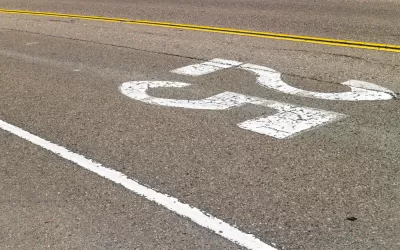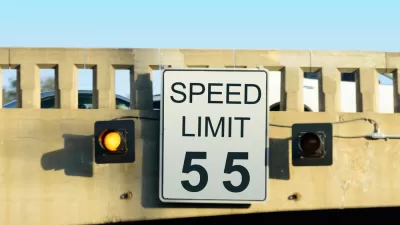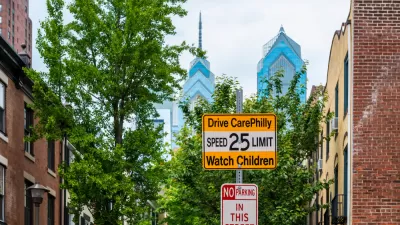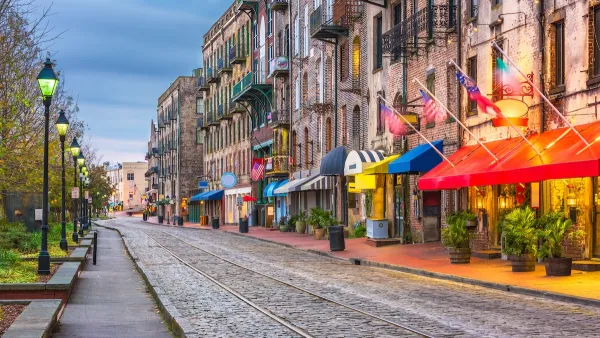Business Insider offers a platform for an argument favored by the National Motorists Association and a particularly vocal Michigan state police officer: that speed limits are too slow to be safe.

An article by Alex Mayyasi makes the case that the system by which the United States regulates the speed of vehicles is irrational and unsafe. That is, as the headline of the article states, "There's convincing evidence that speed limits are way too low."
Mayyasi cites Lieutenant Gary Megge of the Michigan State Police as a leading advocate in favor of higher speed limits. Lt. Megge's argument centers on the 85th percentile rule, which traffic engineers are supposed to use to determine speed limits, though speed limits are often set below that level. Thus, according to Lt. Megge, most drivers speed. In his own words, Lt. Megge describes why he thinks that's wrong:
“We all speed, yet months and months usually pass between us seeing a crash,” Lt. Megge tells us when we call to discuss speed limits. “That tells me that most of us are adequate, safe, reasonable drivers. Speeding and traffic safety have a small correlation.”
Going a step further, Lt. Megge believes that raising speed limits would make roads safer by putting an end to the tacit understanding that the speed limit is set too low. Mayyasi explains: "With higher speed limits, Megge says, police officers could focus their resources on what really matters: drunk drivers, people who don’t wear seat belts, drivers who run red lights, and, most importantly, the smaller number of drivers who actually speed at an unreasonable rate." Megge also says that the only way to lower speeds is through engineering choices: "It’s more expensive, but unlike changing the number on a sign, it’s effective," paraphrases Mayyasi.
FULL STORY: There's convincing evidence that speed limits are way too low

Planetizen Federal Action Tracker
A weekly monitor of how Trump’s orders and actions are impacting planners and planning in America.

Maui's Vacation Rental Debate Turns Ugly
Verbal attacks, misinformation campaigns and fistfights plague a high-stakes debate to convert thousands of vacation rentals into long-term housing.

San Francisco Suspends Traffic Calming Amidst Record Deaths
Citing “a challenging fiscal landscape,” the city will cease the program on the heels of 42 traffic deaths, including 24 pedestrians.

Amtrak Rolls Out New Orleans to Alabama “Mardi Gras” Train
The new service will operate morning and evening departures between Mobile and New Orleans.

The Subversive Car-Free Guide to Trump's Great American Road Trip
Car-free ways to access Chicagoland’s best tourist attractions.

San Antonio and Austin are Fusing Into one Massive Megaregion
The region spanning the two central Texas cities is growing fast, posing challenges for local infrastructure and water supplies.
Urban Design for Planners 1: Software Tools
This six-course series explores essential urban design concepts using open source software and equips planners with the tools they need to participate fully in the urban design process.
Planning for Universal Design
Learn the tools for implementing Universal Design in planning regulations.
Heyer Gruel & Associates PA
JM Goldson LLC
Custer County Colorado
City of Camden Redevelopment Agency
City of Astoria
Transportation Research & Education Center (TREC) at Portland State University
Jefferson Parish Government
Camden Redevelopment Agency
City of Claremont





























